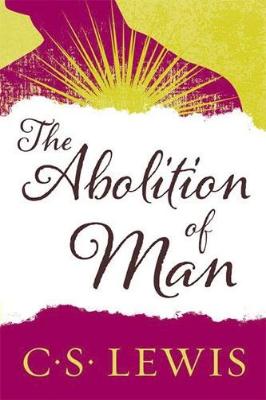This book contains brilliant and important ideas that I had never heard before. Two have stuck with me long after reading this work.
The first is that the idea that our modern conception of what "reason" encompasses is highly deficient. The medievals and ancients would have included "common sense," things that do not need to be proved, such as the idea that morally good acts are worth doing.
The second memorable idea is that we are raising "men without chests," that is, without any courage or spiritedness. How can we try to achieve virtue if we don't even dare we can achieve it? This commentary is especially helpful as a young parent. We need to try harder than in times past to raise our children to have a courageous spirit. I'd like to see a modern parenting guide inspired by this book.
Few scholarly authors are capable of taking lofty ideas and "translating" them into the language of the "average Joe." This is one of Lewis's best talents. He's trying to present old ideas in new ways and is by and large extremely successful. On occasion this novelty can become excessive or can be a bit off-point, and that is frustrating. However, that just comes with the territory. This is a work for the average person, not primarily for scholars. If you want very precise language, that's what you've got Aquinas for.
Read this in the context of the audience it was intended for and you should be delighted.

